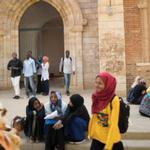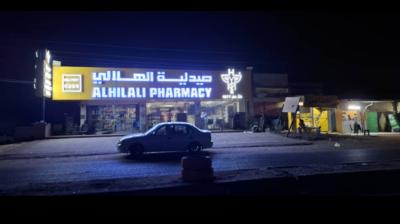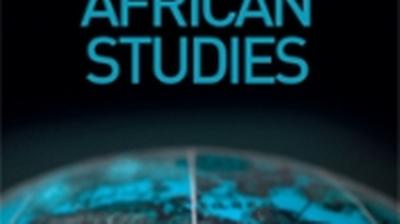Jalal's legacy: Remembering a brave friend and activist, a hidden hero of Sudan’s war
The political unrest in Sudan, which escalated from a revolution to a military coup and erupted into a war on April 15, 2023, has inflicted severe damage across various demographics. The LGBTQI+ community, in particular, whose struggles are compounded by deep-rooted cultural and structural biases.
They are often stigmatized due to prevailing social and religious norms. This cultural backdrop profoundly affects LGBTQ+ people, leading to exclusion and even persecution within their own families and communities. For instance, the ordeal of a young gay man in Almanshyiah, Khartoum, abused by his family as tensions escalated, underscores the harsh realities faced by LGBTQI+ persons—where their homes become arenas of conflict and shame rather than sanctuaries of support and safety[1]. This societal rejection is exacerbated by a breakdown in legal protections during times of conflict, making LGBTQI+ people targets for violence and exploitation. The example of a gay man kidnapped for ransom by the Rapid Support Forces in Alailafoon highlights the exploitation of sexual orientation for financial gain, reflecting a broader erosion of societal norms and legal structures that should protect vulnerable populations[2]. The challenges continue even in exile, as seen with Sudanese LGBTQI+ refugees in Neighboring countries, who face significant risks related to their use of social platforms. While providing a vital social connection, these platforms expose users to surveillance and persecution by authorities, leading to legal troubles and social ostracism. This situation is an illustration of the transnational nature of the vulnerabilities faced by the LGBTQI+ community, which persist across borders and require international attention (Weiss and Bosia, 2013)[3].
This societal rejection is exacerbated by a breakdown in legal protections during times of conflict, making LGBTQI+ people targets for violence and exploitation.
But here, I want to take the opportunity to tell Jalal's[4] story. Jalal was a kind 28-year-old man from Omdurman, Karari locality. My first encounter with Jalal was through neighborhood demonstrations at the beginning of 2019. He was proactive and mobile, always at the forefront, helping anyone in need during these events. His energy was distinct; whether at a wedding or a funeral, Jalal was among the first to arrive, ready to lend a hand with arrangements, checking on necessities like food and water. He was perpetually smiling, friendly, and well-dressed.
In one memorable meeting in February, after some demonstrators had been killed and fear had started to seep into our hearts, Jalal was the one who lifted our spirits. I asked him, "Where do you get all this strength and faith?" He replied, "With this revolution, we either exist or we don't." Curious, I pressed further, "Who are you?" He quickly answered, "We are the forgotten on the earth," then he vanished from my sight. Someone present remarked, "No matter what, his manhood is incomplete." At the time, I didn’t grasp the meaning.
In one memorable meeting in February, after some demonstrators had been killed and fear had started to seep into our hearts, Jalal was the one who lifted our spirits.
As time passed, Jalal and I met often, especially during the sit-in in front of the headquarters, as we both lived in Omdurman. He became my companion to the sit-in site. We would discuss everything—our dreams, the new Sudan we hoped for. One day, over coffee, waiting for the announcement of the civilian government, Jalal confided in me about his life. He started by saying, "I am different," revealing that he was a gay man. Jalal trusted me and felt safe in sharing his truth. He described his long journey of self-acceptance, marked by internal conflict and self-acceptance, but at the age of 21, he had fallen in love and felt sure, happy, and complete. He expressed, "In the new Sudan, I am not ambitious for the society and the state to accept me, but I do not want to spend my life in prison just because my feelings lean towards men." This conversation brought us even closer.
The last time I saw him was in September 2022, after the coup. He was still vibrant and committed to the cause. He believed in the revolution and said, "We are coming back, we just need to rest a bit." I wish I had known it was the last time I would see him.
Taken too soon
In May 2023, Jalal was killed. An eyewitness reported intense gunfire between the army and the Rapid Support Forces near a hospital in Omdurman, where Jalal was volunteering. Despite the danger, he refused to leave those in need. During the shooting, someone was injured and fell to the ground. Jalal did not hesitate; although his companions tried to hold him back, he rushed to help. Tragically, he was hit by three stray bullets.
Jalal did not hesitate; although his companions tried to hold him back, he rushed to help.
The exact source of the gunfire that struck Jalal, whether it was the army or the Rapid Support Forces, remains unknown. Despite attempts to provide first aid, Jalal died quickly. I learned of his death through Facebook, where friends shared his picture along with texts of condolences. It was hard to comprehend... Jalal died in the prime of his youth, never seeing the Sudan he dreamed of.
My grief for Jalal raises many questions: Will Sudanese history remember that a gay person sacrificed his life to save another? How many LGBTQI+ people have been killed or died from the consequences of the war and remain unrecognized for their resilience? Can Jalal now exist as he wished in his new place? Does queerness continue after death? Like Jalal, numerous persons in Sudan and worldwide have aspired to achieve a life of recognized humanity yet have been thwarted in realizing this fundamental aspiration.
In sharing the story of Jalal, my friend and a courageous activist, we venture beyond academic writing to perform a vital act of witness and remembrance. This isn't just about understanding socio-political dynamics; it's about honoring the life of someone who, despite the odds, lived with immense bravery and integrity. Jalal's experiences as a gay man deeply involved in the protests highlight the personal stakes and the profound intersection of identity and activism. By telling his story and recounting his tragic end, we ensure that his memory remains vibrant and address the ethical necessity of preserving such narratives. As Primo Levi wisely observed, documenting the lives of marginalized individuals is crucial for truly capturing the human essence within political conflicts, ensuring their voices are not lost but acknowledged in their full, authentic humanity (Levi, 1989)[5]. Therefore, Jalal's story, marked by his active participation and ultimate sacrifice during the war, illustrates the intersection of personal agency with societal narratives, particularly concerning how queer identities are remembered or erased. His tragic death while assisting another during a moment of crisis not only highlights his commitment as an activist but also presents a crucial moment for examining the legacy of the LGBTQI+ community within collective memory. This act of altruism brings significant reflections on the continuance of queerness after death and its implications for collective memory and mourning. Lee Edelman, in his work "No Future: Queer Theory and the Death Drive," suggests that queer subjects are often excluded from narratives of futurity, which are typically colored by reproductive heteronormativity (Edelman, 2004)[6]. Thus, Jalal’s death raises ethical questions: How is the queer body remembered in societies where its existence was contentious? Does the memory of an LGBTQI+ person like Jalal persist, or is it obscured by societal norms that prefer to overlook such identities?
This isn't just about understanding socio-political dynamics; it's about honoring the life of someone who, despite the odds, lived with immense bravery and integrity.
Engaging with the work of David Eng and David Kazanjian on the politics of mourning, it becomes evident that commemorating LGBTQI+ individuals like Jalal acts as a form of political resistance. It challenges societal tendencies to erase queer identities from historical narratives, ensuring that these individuals are remembered not just as footnotes but as integral parts of the historical fabric (Eng & Kazanjian, 2003)[7]. This act of remembrance is crucial for it asks: Are the narratives of LGBTQI+ people sanitized to fit more palatable historical accounts, or are they acknowledged and preserved in their authentic forms?
These considerations expand the discourse on how resistance movements integrate—or fail to integrate—LGBTQI+ narratives. Jalal’s life and untimely death, against the backdrop of Sudan’s socio-political turbulence, necessitate a reevaluation of resistance frameworks and identity formation, especially in conflict zones. His narrative enriches postcolonial studies, conflict resolution, and human rights discussions by demonstrating the essential need for nuanced understandings of the intersections of identity, politics, and resistance. As societies reconstruct post-conflict, the stories of persons like Jalal should be remembered and actively studied as emblematic of broader systemic challenges and potential pathways toward inclusive peacebuilding. This consideration leads us to a compelling academic and societal inquiry: How can post-conflict societies reconstruct their national identities to inclusively reflect the diverse narratives of all citizens, particularly those from marginalized communities, thereby ensuring that the legacies of individuals like Jalal are foundational to the creation of a new and equitable society?
Who are we fighting for if we keep losing them along the way?
Following Jalal’s passing, I found myself grappling with a deeply personal question: "Who are we fighting for if we keep losing them along the way?" History shows that significant societal transformations stem from prolonged struggles. Our endeavors are not fruitless; they continue the work of those who tirelessly pursued justice, such as African Americans and South Africans, often without immediate success. This legacy not only inspires but also highlights the lasting impact of our ongoing efforts. As we push for change, we honor Jalal and the many others whose voices were silenced too soon, reflecting on their stories to underscore our cause's urgency and shape a vision of a world where diversity is embraced with enthusiasm. Our journey transcends ideology—it’s fundamentally a commitment shaped by the profound losses we've endured, guiding us to champion a future where every voice is valued. In remembering Jalal, we transform our grief into a powerful force for societal change; this commitment is most seen in our darkest moments as a tribute to those we've lost and a beacon for ongoing efforts toward equality. We draw strength from the lives of Jalal and the broader LGBTQI+ community, particularly those from marginalized regions, recognizing their essential role in our shared history and their contributions to a more inclusive society.
This Sudanese Perspectives blog post is written by Samah Khalaf Allah, doctoral researcher at the University of Bayreuth. Samah Khalaf Allah is a prominent Sudanese human rights advocate, feminist, and SRHR advocate.
The views expressed in this post are those of the author, and do not necessarily reflect the opinions of the SNAC project or CMI.
[1] Information provided by a local queer activist
[2] Information provided by a local queer activist
[3] Weiss, Meredith L., and Michael J. Bosia. Global Homophobia: States, Movements, and the Politics of Oppression. Urbana: University of Illinois Press, 2013
[4] A pseudonym is used to protect the person's identity.
[5] Levi, Primo. The Drowned and the Saved. New York: Summit Books, 1989.
[6] Edelman, Lee. No Future: Queer Theory and the Death Drive. Durham, NC: Duke University Press, 2004.
[7] Eng, David L., and David Kazanjian, eds. Loss: The Politics of Mourning. Berkeley: University of California Press, 2003.




